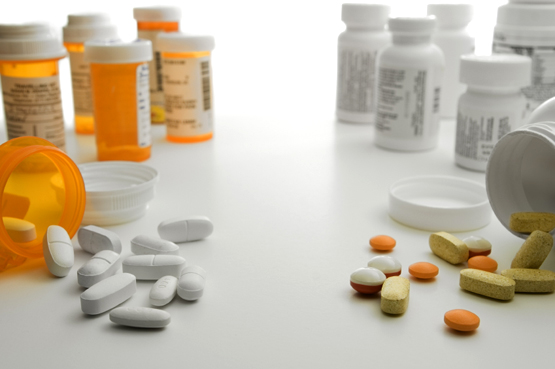Moving Medical Advances into Developing Nations
New agreement aims to remove licensing barriers

Boston University has added its support and signature to a pioneering statement of principles meant to help make medical breakthroughs available to people in developing countries.
The statement, signed November 9, meets an emerging BU priority, according to Ashley Stevens, BU Office of Technology Development (OTD) executive director of technology transfer and president-elect of the Association of University Technology Managers: to ensure that “drugs and vaccines that result from academic research are available affordably in the developing world soon after their approval in the developed world, not 10 or 15 years later.”
The Statement of Principles and Strategies for the Equitable Dissemination of Medical Technologies, signed by BU, Harvard, Yale, Brown, the University of Pennsylvania, Oregon Health and Science University, and the AUTM, establishes seven guidelines to follow in drawing licensing agreements with medical companies.
More institutions have signed on to the document since its release, including the National Institutes of Health and the University of Illinois at Urbana-Champaign.
The organizations, according to the statement, “are committed to implementing effective technology transfer strategies that promote the availability of health-related technologies in developing countries for essential medical care.” Those technologies focus on drugs and vaccinations, but include medical diagnostics and devices.
The signatories want to prevent their intellectual property rights from serving as unwitting barriers to providing health-care breakthroughs to the developing world.
The document lays out several paths toward that end. Among them, research organizations agree to seek licensing partners willing to make patenting concessions, such as agreeing not to patent products in countries where cheaper generic versions could be made or selling patented goods through a tiered-pricing system.
Medical partners who do not abide by their contract could risk losing their patent license or having it opened to competitors.
By signing the statement, research institutions also agree to develop new health-related technologies to combat diseases that afflict populations in developing nations, diseases ranging from tuberculosis and AIDS to water-borne maladies.
Andrei Ruckenstein, BU associate provost and vice president for research, says the push for universities to develop favorable licensing terms started in 2001 with lobbying efforts by Universities Allied for Essential Medicines, a national student group focused on making academic inventions affordable to underserved populations.
Stevens, Gerald Keusch, a School of Public Health professor of international health and Medical Campus associate provost for global health, and Kevin Outterson, an associate professor in the School of Law, have been working on trying to implement more egalitarian licensing agreements for years. According to Stevens, BU first implemented strategies in new licenses for drug and diagnostic discoveries in October 2007.
In June 2008, Stevens and colleague April Effort, an OTD licensing associate, coauthored an article in the journal Licensing Executives Society identifying eight licensing strategies to promote global social responsibility.
Financial incentives are used to sweeten licensing deals. Companies could agree to sell their drugs at a lower cost in the developing world, while keeping prices high in places like the United States. Or, research institutions could offer to lower or eliminate their patent royalties.
But companies don’t need much pushing to enter into these new licensing agreements. “The pharmaceutical industry is moving in this direction,” Stevens says.
It’s bad press, he adds, for biomedical companies to fight against the importation of cheaper drugs to treat the poor. Some have moved toward partnering with nonprofits to develop drugs, sold their products at cost, or given away samples, partly to improve public image, partly to broaden market share.
Alex Lankowski (MED’12), a leader in the BU chapter of Universities Allied for Essential Medicines, says his student group supports Stevens’ work and is thrilled by the statement’s release. In many ways, he says, it echoes UAEM’s Responsible Licensing Statement of Support.
Even so, the student group is not ready to declare its mission accomplished. “It’s unclear whether the mechanisms laid out in the document will actually achieve the ultimate goal of improving access to medicines,” Lankowski says.
He thinks research organizations should establish an oversight committee to ensure transparency and design a way to measure real-world results.
“We’re interested in seeing that our future patients actually have access to the medications that are developed at our University,” Lankowski says. “The responsibility of the physician doesn’t end at providing care to his patient.”
Leslie Friday can be reached at lfriday@bu.edu.
Comments & Discussion
Boston University moderates comments to facilitate an informed, substantive, civil conversation. Abusive, profane, self-promotional, misleading, incoherent or off-topic comments will be rejected. Moderators are staffed during regular business hours (EST) and can only accept comments written in English. Statistics or facts must include a citation or a link to the citation.